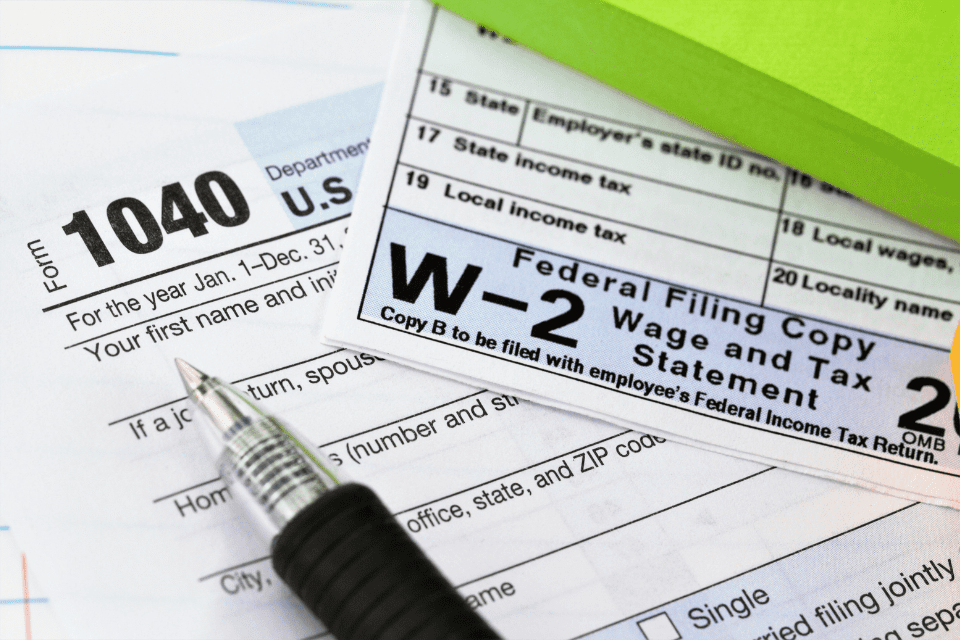Tax season can be stressful for many Chicago residents, but for those struggling with financial hardship, it can be overwhelming. If you are facing a significant tax debt that you cannot afford to pay, you might be wondering what options you have. While some tax debts cannot be discharged through bankruptcy, certain circumstances allow for relief under Chapter 7 or Chapter 13 bankruptcy.
Understanding how bankruptcy interacts with tax obligations is crucial, especially for individuals and small business owners navigating financial distress. This guide explores how bankruptcy can help manage taxes and debt in Chicago and when it might be a viable solution for you.
Understanding Tax Debt and Bankruptcy
Not all tax debts are treated equally in bankruptcy. Whether your tax obligations can be discharged depends on various factors, including the age of the debt, the type of tax owed, and whether you’ve filed your tax returns properly.
In general, income tax debt may be eliminated under Chapter 7 bankruptcy if it meets the following criteria:
- The tax debt is at least three years old.
- You filed a tax return for the debt at least two years before filing for bankruptcy.
- The IRS assessed the tax debt at least 240 days before filing.
- There is no fraud or willful tax evasion involved.
If your tax debt does not qualify for discharge under Chapter 7, Chapter 13 bankruptcy might offer a structured repayment plan that allows you to catch up on tax payments over time and may pause most collection efforts during the process.
How Chapter 7 Bankruptcy Can Help with Tax Debt
Chapter 7 bankruptcy is often referred to as “liquidation bankruptcy” because it eliminates unsecured debts, such as credit cards and medical bills, for qualifying individuals. Under specific conditions, it can also discharge older income tax debt. However, payroll taxes and recent income tax obligations generally cannot be wiped out.
If your tax debt meets the eligibility criteria for discharge, filing for Chapter 7 can provide significant relief by removing this financial burden. It can also halt collection efforts, such as wage garnishments or bank levies imposed by the IRS or the Illinois Department of Revenue.
How Chapter 13 Bankruptcy Helps Manage Tax Debt
For those who do not qualify for Chapter 7 or have tax debt that cannot be discharged, Chapter 13 bankruptcy provides an alternative. Under this repayment plan, tax debt is categorized into priority and non-priority debts.
- Priority Tax Debt: This includes recent tax liabilities that must be repaid in full through your bankruptcy plan. The good news is that while you are in Chapter 13, the IRS and state tax agencies cannot pursue collection efforts against you.
- Non-Priority Tax Debt: Older tax debts may be treated as unsecured debt, meaning they could be reduced or discharged at the end of your repayment plan.
A key benefit of Chapter 13 is that it allows you to make manageable monthly payments over three to five years, giving you time to stabilize your finances while protecting essential assets like your home.
Tax Liens and Bankruptcy: What You Need to Know
It’s important to understand that while bankruptcy can eliminate certain tax debts, it does not automatically remove tax liens that have already been placed on your property. If the IRS has filed a lien against your home or assets before you file for bankruptcy, that lien may still remain even if the underlying tax debt is discharged.
This means that if you want to sell your property in the future, you may need to pay off the tax lien first. However, in some cases, Chapter 13 bankruptcy can help by including lien payments in your structured repayment plan.
When Bankruptcy is the Right Option for Managing Tax Debt
Deciding whether to file for bankruptcy to address tax debt depends on your overall financial situation. Bankruptcy might be a good option if:
- You have significant tax debt that meets the eligibility criteria for discharge.
- The IRS is pursuing aggressive collection actions, such as wage garnishments or bank levies.
- You need a structured repayment plan to handle tax debt alongside other financial obligations.
- You have other unsecured debts that can also be discharged, improving your financial stability.
If you are unsure whether bankruptcy is the best solution for your tax debt, speaking with an experienced bankruptcy attorney can help. At Tang & Associates Law Office, we provide personalized guidance to help you understand your options and choose the best path forward.
Alternatives to Bankruptcy for Tax Debt Relief
While bankruptcy can be an effective way to manage overwhelming tax debt, there are other options to consider:
- Offer in Compromise (OIC): The IRS may agree to settle your tax debt for less than what you owe if you demonstrate financial hardship.
- Installment Agreements: You may be able to negotiate a payment plan directly with the IRS or state tax agency.
- Currently Not Collectible (CNC) Status: If you can prove that paying your tax debt would cause severe financial hardship, the IRS may temporarily suspend collection efforts.
To explore these alternatives, it’s best to consult a tax professional or attorney who is experienced in tax debt resolution. The IRS provides additional details on tax relief programs on its official website: IRS Tax Relief Options.
Conclusion: Taking Control of Your Tax Debt
If you are struggling with taxes and debt in Chicago, bankruptcy can be a powerful tool to help regain financial stability. Whether through Chapter 7 or Chapter 13, in some cases, you may be able to eliminate or restructure your tax obligations while protecting your assets.
However, navigating bankruptcy and tax laws can be complex, which is why seeking legal guidance is crucial. At Tang & Associates Law Office, our firm has extensive experience in bankruptcy and debt relief solutions, helping Chicago residents find the best path forward. Contact us today for a consultation to explore your options and take control of your financial future.
Disclaimer: This blog is for informational purposes only and does not constitute legal advice. Consult an attorney for legal guidance specific to your situation.

